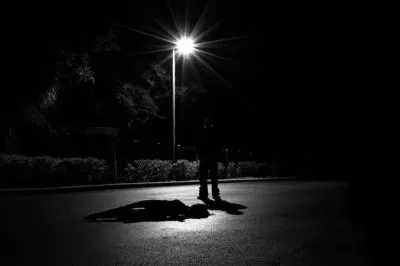
- Originally Published on March 21, 2023
What is Revenge Porn?
It can be a shock to find intimate images or videos of yourself posted online without your consent. You might have shared these images willingly with an individual, or they might have been stolen or coerced from you.
Otherwise known as nonconsensual pornography, revenge porn is the distribution of explicit images without the subject’s permission. If you did not give your consent for the images to be shared publicly, the act constitutes revenge pornography.
At Minc Law, we have years of experience helping clients like you remove explicit content from revenge porn platforms and other websites. We can help you fight back against online harassment by communicating with platforms, pursuing legal action, and working with law enforcement to bring perpetrators to justice.
In this article, we provide information on what constitutes revenge porn, what to do if you are a victim of nonconsensual pornography, and the legal options available to you.
With a team of experienced attorneys, we will fight for the closure you deserve. Take back control today.Don't suffer in silence.
What is Revenge Porn?
Revenge porn is the distribution of intimate media without the subject’s consent. If someone—whether you know them or not—publishes or shares explicit images of you, you have civil claims you may pursue against them and may be able to press for criminal charges.
What Qualifies as Revenge Porn?
The term ‘revenge porn’ is used because the classic motive for sharing the photos is to get back at someone for a break up or some other slight. However, it can be a bit of a misnomer because ‘revenge’ is not always the motive for publishing the content.
From a legal standpoint, we refer to the civil claim or crime of “revenge porn” more often as “distribution of nonconsensual pornography” to encompass other motives. To keep things simple for the purposes of this article, we will use the term ‘revenge porn’.
Below, we provide a few common revenge porn examples.
Hacking Your Nudes & Intimate Selfies
Say you took a few nude selfies to send to your boyfriend. You decided not to send them that day, but you kept them on your phone in case you eventually worked up the nerve.
Unbeknownst to you, a hacker accesses your phone’s cloud account and finds the photos. They post the intimate media online, then send you an anonymous email with links to the images. They tell you they will take down the images—if you pay them.
This type of sextortion is unfortunately on the rise. It is estimated that 43% of revenge porn cases are perpetrated via hacked devices or cloud accounts.
Sharing Confidential Sexts Without Permission
A text conversation with your crush turns flirtatious and sexual, and they eventually ask you to send a nude video. Because you are excited about the relationship—and you trust your crush—you comply.
But to your horror, you later discover that your crush posted the photos or video to several pornography websites without asking you or screenshotted and shared the content with their friends.
Even though you consensually shared the video, you did not give permission to share it with the world. Therefore, this scenario qualifies as nonconsensual pornography—and it is extremely common among teenagers. Approximately 12% of teens have shared sexts without the subject’s consent.
Publishing Intimate Images on Shaming & Revenge Porn Websites
You have been growing apart from your spouse in recent years. You have a close relationship with a friend from work—which has lately developed into an affair.
One night while you are in another room, your spouse finds intimate text messages on your phone. They are devastated and enraged to learn of the affair. In their jealousy, they forward the sexts to their own device and publish them on shaming, cheater, and revenge porn websites.
These are just a few of the most common examples of nonconsensual pornography that we see but there are a wide array of other situations in which revenge porn is published or distributed.
What Does Not Typically Qualify as Revenge Porn?
While the circumstances can vary widely, not every instance of publicly distributed explicit images qualify as revenge porn. If the subject gave permission to publish intimate images online, the situation usually does not constitute nonconsensual pornography.
Below, we examine two such scenarios.
Consensual Paid Pornography
In your younger years, you earned a side income modeling or participating in adult films. Now that you are older and have a family, you are concerned your children might encounter this media someday.
Because you permitted the pornography site or publication to share these images of you, this does not constitute revenge porn. But you may still have legal options to suppress or remove these images.
Authorized Use or Release of Photos
You visited your favorite tattoo studio to commission a large and intricate piece on your upper thigh. After the session, the tattoo artist asked if they could take a photo of the tattoo to show other potential customers. You sign an authorization form giving consent for the tattoo studio to use the image.
But now the studio uses that image in its advertising materials. A photo of your nude upper thigh and hip is displayed prominently on the studio’s website—and everyone in your small town knows it is you. You are embarrassed, your parents are giving you a hard time, and you are concerned this incident will impact your professional opportunities.
Since you gave written consent for the studio to use the image for advertising purposes, this scenario would not likely constitute revenge porn.
Revenge porn typically involves the depiction of genitalia in some way. Generally, revenge porn cases are based on photos or videos of genitalia, butt, or female breasts (depicted below the top of the areola). If someone is engaged in a sexual act, this also will typically be considered revenge porn – particularly with videos.
How Common is Revenge Porn?
Unfortunately, revenge porn is all too common in the United States. It is estimated that 1 in 12 adults in this country is a victim of image-based abuse.
Like other sexual crimes like sexual assault and harassment, revenge porn can affect anyone—but most victims are women or part of the LGBTQ+ community.
According to one study, an estimated 10% of women under 30 years old have experienced threats of nonconsensual pornography. Further, 17% of LBGTQ+ respondents were threatened or victimized by nonconsensual distribution of private images.
What Are the Effects of Revenge Porn on a Victim?
Nonconsensual pornography can be extremely damaging to victims’ personal and professional lives. While unfair, most of the reputational harm often falls on the victim of revenge porn rather than the perpetrator. These victims are sometimes harassed, stalked, and threatened.
The reputational fallout from being a victim of revenge porn can often lead to depression, anxiety, and thoughts of self-harm. Jessica Klein, a University of Southern California School of Social Work lecturer, emphasized that survivors of this sexual exploitation shared “symptoms similar to survivors of physical sexual assault.”
Many domestic abusers use revenge porn over their victims’ heads as a tool of control. They threaten to publish explicit images of their partner if they report abuse or leave the relationship. Similarly, sex traffickers often use threats of revenge porn to control their victims.
If you are experiencing thoughts of self-harm, know that you are not alone.
Please contact the Cyber Civil Rights Initiative hotline at 844-878-CCRI (2274) for support, referrals, and non-legal advice. Or, you can call 988 across the U.S. to reach the Suicide and Crisis lifeline.
If you are or were a minor when the photos or videos of you were taken, we recommend also contacting the NCMEC to file a report.
What You Can Do if You Are a Victim of Revenge Porn
If a stranger or someone you know has posted explicit images of you online, it is important to remember that this is not your fault. You have a right to privacy, you are not alone, and you have legal options.
Your first step should be to preserve copies of the content. Your first instinct may be to delete what you can—but counterintuitively, the more proof you have, the easier it will be to procure legal relief. For instance, the perpetrator might delete the content before they can be brought to justice.
Take screenshots, save the images to a flash drive, or print the content. Save copies of any message the perpetrator sent you as well. The more evidence you have, the better prepared you will be to pursue legal claims against the perpetrator.
What is the First Step When You Find Compromising Pictures of Yourself Published Online?
The internet is a big place—which means that if you find one piece of harmful content, chances are it is not the only one. To successfully remove intimate photos from the internet, you should start by trying to find every webpage on which the content is published.
Conduct a Reverse Image Search
Copy and paste the image into Google’s Reverse Image Search tool to find out where the image came from. The search results will display anywhere online where that same image is posted.
Check Popular Adult Sites
Often when content is posted on one popular pornography site, it is quickly copied to other similar sites. Check popular adult sites like PornHub, XHamster, and RedTube to see if your intimate media is posted there.
Just be careful not to search your name too often on these sites; the more a keyword is searched, the likelier it is to appear on the site’s search tags.
Use an Image Recognition Service
You can also subscribe to a facial or image recognition service like PimEyes, which uses AI to find your images online and alert you of matches.
What Can You Do if You Are a Victim of Revenge Porn?
The process of removing revenge porn from the internet fluctuates depending on the type of content, the site(s) where it was posted, and your unique situation. Your attorney may recommend one or more of the following actions:
Report the Content to the Platform
Most legitimate websites—even pornography sites—have Terms of Service that prohibit content like nonconsensual pornography. Often, the quickest method of removing revenge porn is to report the content to the website where it was posted.
Some sites may require a processing fee to remove the content, which can feel distasteful, but it may be the most cost-effective option.
Submit a Google Revenge Porn Notice
It can also be helpful to remove the offending URL from Google’s search results by submitting a notice through their revenge porn portal. While this method does not remove the URL from the internet, it does grant temporary relief by preventing casual Google users from coming across the content.
Send a DMCA Takedown Notice
If you took the photos or video yourself, you own the copyright to that content. You can send a DMCA takedown notice to inform the website that your copyrighted work is being used without your permission.
DMCA takedown notices are often tricky to handle, so it is best to work with an experienced content removal or DMCA attorney if you plan to send one.
Reach Out to the Person Who Posted the Content
The best course of action is sometimes to contact the publisher of the content themselves. Your attorney may send a demand letter explaining the legal consequences of not removing the content—or they may diplomatically convince the perpetrator to take the content down on their own.
The tips above are some of the initial steps in a response to revenge porn—however, you may have criminal or civil recourse under your state laws, which we address in the next section.
For further reading, please see our comprehensive resource explaining ‘What to do if someone is distributing your intimate images without consent’.
What Can I Do if I Was Under 18 in the Photos or Videos?
If you were underage when the picture or video was taken, publishing it constitutes child pornography. If this is the case, do not take screenshots of or preserve the photos, since this may be construed as the possession of child porn.
What we recommend to clients who were underage when the picture or video was taken, is to:
- Not keep the screenshots of the content anywhere;
- Keep a record of the URLs for the purpose of reporting the content;
- Consider consulting a criminal attorney in your state if you are concerned about your own potential liability in creating the content;
- Assuming that the criminal attorney says this is not an issue, file a police report and report the content to the NCMEC.
While we at Minc Law can assist with removing that content, a criminal attorney can counsel you through the criminal process. Once those steps are taken care of, we can explore whether you want to, can, or should pursue civil claims.
Legal Options Available to Victims of Revenge Porn
Revenge porn may be a civil or criminal offense (or both), depending on the state where you or the perpetrator live. Since specific state statutes determine your legal options for filing a revenge porn lawsuit, your first step should be contacting an experienced revenge porn attorney.
When Can You Pursue Legal Claims For Revenge Porn?
Your state determines whether civil or criminal claims are available for a revenge porn lawsuit. For example, California’s revenge porn statute is robust and allows for recovery under both civil and criminal claims. Further, in October 2022, a federal cause of action for revenge porn victims went into effect.
This section outlines the criminal and civil claims you can bring against the perpetrator of revenge porn.
Criminal Claims
You may wish to file a criminal report with your local law enforcement. Your local district attorney and police handle criminal cases of revenge porn. Once you file the report, law enforcement and your local prosecutor’s office will determine whether there is cause to bring criminal charges against the perpetrator.
Currently, 48 states and the District of Columbia have criminal laws against the publication or distribution of revenge pornography. In most states, the crime is a high-level misdemeanor but can be escalated to a felony if certain conditions are met.
If you were a minor when the explicit media was created, the perpetrator is likely guilty of child pornography. This is a very serious offense in every state, and they can be prosecuted under federal and state law. If you were an adult when the photos or videos were taken, the perpetrator might still face large fines and jail time for nonconsensual pornography.
It is important to note that as the victim, you have little control over a criminal case after filing the police report. In our experience, it can be difficult to get law enforcement to devote the resources necessary to revenge porn cases unless it is an especially egregious incident, but that does not mean you should not report it.
Civil Claims For Revenge Porn
Filing a civil claim for revenge porn usually will not lead to jail time for a perpetrator, but it can help you collect monetary damages. With a civil revenge porn lawsuit, you may also obtain a court order to remove the content from the internet.
Only a fraction of states currently have civil laws specifically addressing revenge porn. Even if you live in a state that does not have a statutory claim, you may still be able to bring other civil claims against the offender. For example, your attorney may suggest one of these possible state civil claims:
- Copyright infringement,
- Cyber/general harassment,
- Fraud,
- Intentional infliction of emotional distress,
- Privacy torts (false light, intrusion invasion of privacy, and misappropriation),
- Prima facie tort,
- Stalking, and
- Extortion/blackmail.
The federal Violence Against Women Act also provides a civil cause of action for “an individual whose intimate visual depiction is disclosed… without the consent of the individual, where such disclosure was made by a person who knows that, or recklessly disregards whether, the individual has not consented to such disclosure.” While the claim was enacted under the Violence Against Women Act, any individual regardless of gender or sex may bring a claim if the elements are met.
Under this statute, you may be able to file a civil claim against the perpetrator in federal court. While this new addition to the law is relatively untested, it is a positive step forward in protecting the rights of revenge porn victims.
To learn more about the laws regarding nonconsensual pornography in your state, see our in-depth guide: Revenge Porn Laws: Learn How to Fight Back [50 State Interactive Map].
Why Should You Consider Hiring a Revenge Porn Attorney if You Are a Victim of Revenge Porn?
When you find explicit images or videos of yourself floating around online, it is sometimes tempting to ignore them and hope they go away. But the longer such content stays online, the more likely it is to multiply to other (more mainstream) websites. It is in your interest to remove revenge porn quickly and efficiently—and an attorney can help.
An experienced revenge porn attorney can analyze how much sensitive media is posted online about you. They are well-versed in reporting policies and dealing with platforms to get content removed effectively. Often if a site or poster does not respond to your removal requests, they will be more responsive to an attorney.
Being the victim of revenge porn is distressing and overwhelming. Your attorney can also act as a listening ear and third-party advocate who can help analyze your options with a clear head.
They can also help you preserve evidence of the harassment to help bring the perpetrator to justice. If necessary, an attorney can help you file a lawsuit to obtain a court order for content removal.
Can You Sue a Website For Revenge Porn?
In most cases, no, you cannot sue the website where the revenge porn was posted. Section 230 of the Communications Decency Act provides legal immunity to social media sites, search engines, and other platforms that host “user-submitted content.”
It is almost always your only option to sue the individual poster instead. Generally, the only time you may be able to sue the website is if the website administrator or owner published the content themselves. If you do not know their identity, you may need to file a John Doe lawsuit—which we discuss in greater detail below.
What Legal Steps Can Be Taken if You Are a Victim of Revenge Porn?
If you wish to file a revenge porn lawsuit against your harasser, your first step should be to retain an experienced revenge porn and content removal attorney. Together, you can complete the following steps:
- Gather evidence. Save as much proof of the revenge porn as possible. Helpful evidence includes screenshots of the offending content, messages from the poster, and any helpful information about the poster’s identity.
- Decide whether to use a pseudonym. You may want to file a lawsuit under a pseudonym to protect your privacy in public court records. This decision depends on your situation and your state’s requirements.
- File a complaint. A legal complaint is a formal document that begins a lawsuit. It lays out the case’s legal claims and facts, identifies the defendant, and includes a request for relief and damages.
- File a John Doe lawsuit for anonymous posters. In this type of lawsuit, you can subpoena internet service providers and online platforms to learn the identity of an anonymous perpetrator.
- Service of process. Most jurisdictions require plaintiffs to send the defendant a copy of the complaint within 20-30 days after filing with the court. For a John Doe lawsuit, you may need to file a motion to extend this time window.
To learn about the factors that affect the cost of filing a revenge porn lawsuit, check out our article: How to File a Revenge Porn Lawsuit.
Resources for Victims of Revenge Porn
Becoming the victim of nonconsensual pornography is a horrifying and isolating event. We recommend the following additional resources for information and support:
- Minc Law’s Legal Resource Center section with educational materials on dealing with revenge porn;
- Without My Consent, a website with practical resources and information for revenge porn victims;
- The California Attorney General’s Office website on cyber exploitation contains tools and resources for victims and law enforcement;
- The Cyber Civil Rights Initiative, an advocacy group that offers a 24-hour Crisis Helpline for revenge porn victims.
If you are experiencing thoughts of self-harm, know that you are not alone. Please call 988 across the U.S. to reach the Suicide and Crisis lifeline. You can also contact the Cyber Civil Rights Initiative hotline at 844-878-2274 for support, referrals, and non-legal advice.
At Minc Law, we have extensive experience helping clients like you fight back against nonconsensual pornography. This includes working with websites to remove intimate content and filing a revenge porn lawsuit on your behalf.
★★★★★
“As is often the case, only the courts can remedy obscene behavior from sociopaths. Rather than spend money on public image consultants, I would highly recommend Daniel and his team for a more effective solution through the judicial system.”
FAL
August 9, 2021
If you are the victim of revenge porn and want to explore your content removal options, reach out to schedule your initial, no-obligation consultation with an intake specialist by calling us at (216) 373-7706, speaking with a Chat representative, or filling out our online contact form.
This page has been peer-reviewed, fact-checked, and edited by qualified attorneys to ensure substantive accuracy and coverage.





